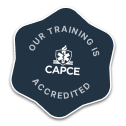
EMS personnel are exposed to various situations on the job that can profoundly affect their mental health and well-being. Caring for the needs of others in emergencies often puts excessive stress on providers, especially when it is required multiple times in one day. Additionally, EMS personnel deal with irregular schedules, lack of sleep or sleep disruptions, and irregular eating schedules, all of which add to the already mounting stress levels. It is essential for each person working in the healthcare field to understand the effects of stress and recognize and deal with it as it arises at work and home.
Incidents such as car accidents, the death of children, murder, rape, domestic abuse, and assaults can leave a lasting impact on an EMS provider. Such events, if not dealt with properly, can lead to an EMS provider feeling depressed or lead to post-traumatic stress disorder or even suicide. Just because someone has been doing the job for a long time or has seen a lot of trauma does not mean they are immune to the effects of witnessing those incidents. Us as providers need to make sure that we deal with the incidents we see in a positive and constructive way that does not lead to us causing harm to ourselves or anyone else.
Stress
Stress is the body's physical reaction to a demand or event. This can be caused by something "good", eustress (e.g. starting a new job, the birth of a highly anticipated child, or training for a sports competition), or something "bad", distress (e.g. traumatic injury, loss of a loved one, loss of a job). When an event causes stress, the body releases chemicals that initiate the “fight-or-flight” response by activating the sympathetic nervous system. This response is helpful when some form of physical danger triggers the response as it provides the body with more strength and energy. However, if the stress is caused by something emotional, it can be harmful as there is no outlet for the chemical response.
The way we react to stress can be categorized as acute stress reactions, delayed stress reactions, or cumulative stress reactions. Acute stress reactions occur in the moment, such as when an EMS provider responds to a call. The provider's adrenaline is pumping, increasing focus. Delayed stress reactions occur after the stressful event, and the nervous feeling builds. Cumulative stress reactions occur when someone is exposed to excessive stress. This can happen for EMS providers who go on multiple stressful calls and do not have the chance to release stress as it builds. Those under excessive or prolonged stress can become tired, sick, or unable to concentrate. This stress can even lead to mental breakdowns.
Stress Management
It's important to recognize when your body is under stress so that you can manage it effectively before it gets out of hand. However, it is not always easy to identify when your body is stressed. If someone you know well mentions that you have been acting differently or that you seem stressed, keep an open mind and consider what they have to say. The best way to manage stress is to be prepared and know how to deal with it. Many EMS agencies understand the potential effects of stress on their employees, and for this reason, many offer free counseling or treatment. Familiarize yourself with your agency's services, so you know where to go when you feel stressed. Although many healthcare providers get very involved with their work, it is important to find a healthy balance by separating yourself from work from time to time and instead choosing to focus on time spent with family and friends.
In this career, your mental health is as important as your physical health. Taking care of yourself in every aspect early on will ensure that you have a lasting, rewarding career.
- Dozens of courses and topics
- State-specific requirements
- We report to CAPCE in real time


